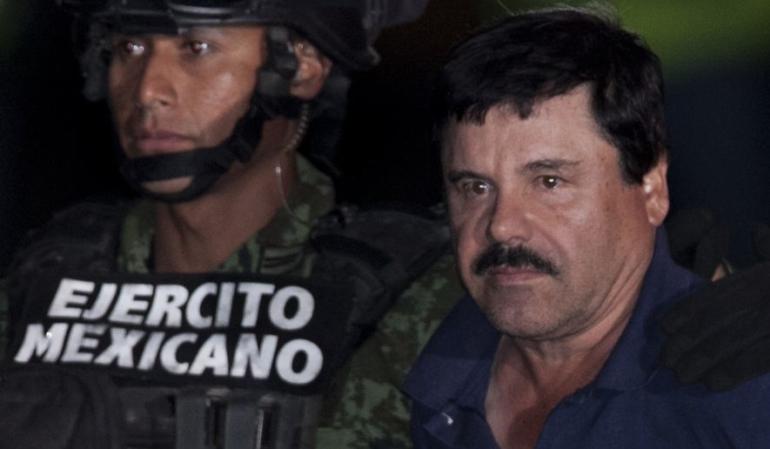The trial of one of the world’s most powerful drug lords is set to begin in New York City on Monday. Joaquin Guzman – better known as El Chapo – is accused of drug smuggling, money laundering, and murder. But the trial and setting pose many security risks, and as CGTN’s Nick Harper reports, prosecutors are taking unusual precautions to keep witnesses, and the city, safe.
Follow Nick Harper on Twitter @NickHarperFSN
Joaquin “El Chapo” Guzman’s extradition to the U.S. in January last year was the culmination of a more than decade-long investigation – and was seen as a huge win for U.S. law enforcement.
At the time, the prosecutor for the case, U.S. Attorney Robert L. Capers, said that, “Guzman’s destructive and murderous rise an international narcotics trafficker is akin to that of a small, cancerous tumor.”
Security for this trial is paramount. The notorious drug dealer and jailbreaker has escaped two maximum security prisons – once by hiding in a laundry cart and then by exiting through a mile-long tunnel that started in his prison shower.
Now one of the world’s most dangerous criminals is coming to New York, and that’s worrying some analysts in the intelligence community.
“New York City is a logistical nightmare to have el Chapo on trial here,” explained Tony Schiena, a former intelligence operator who’s now CEO of intelligence advisory firm Mosaic.
“It’s transporting one of the most powerful criminal figures on the planet who has a history of being very capable in escaping. Does he have people in New York? Absolutely he has people in New York. Will he attempt something? We don’t know.”
Part of the problem is that El Chapo is locked up in Manhattan’s maximum security facility, known as ’10 South’. But his trial is in Brooklyn, meaning daily car rides across the river on some of the city’s busiest roads, causing a sizable security headache.
Prosecutors are also going to extraordinary lengths to keep people safe from possible cartel retribution. Witnesses are in protection programs, their names blanked out on court documents. Jurors are being picked in secret, behind closed doors, and will serve anonymously.
Maki Haberfeld, a professor at John Jay College of Criminal Justice who’s studied international policing for several decades, thinks the federal government’s hope that the trial will act as a deterrent to other drug traffickers could backfire.
“To me it’s not worth it,” she said. “I think it’s oxygen of publicity. It also glorifies in a way El Chapo and his cartel. So it becomes even counterproductive beyond the expenses and the resources we’re really giving them the publicity that they should not be getting.”
If found guilty, the Mexican drug lord will likely spend the rest of his life in a maximum security prison – with little chance of escape.
 CGTN America
CGTN America Mexican drug lord Joaquin “El Chapo” Guzman is escorted by soldiers and marines to a waiting helicopter at a federal hangar in Mexico City on Jan. 8, 2016. (Associated Press)
Mexican drug lord Joaquin “El Chapo” Guzman is escorted by soldiers and marines to a waiting helicopter at a federal hangar in Mexico City on Jan. 8, 2016. (Associated Press)
